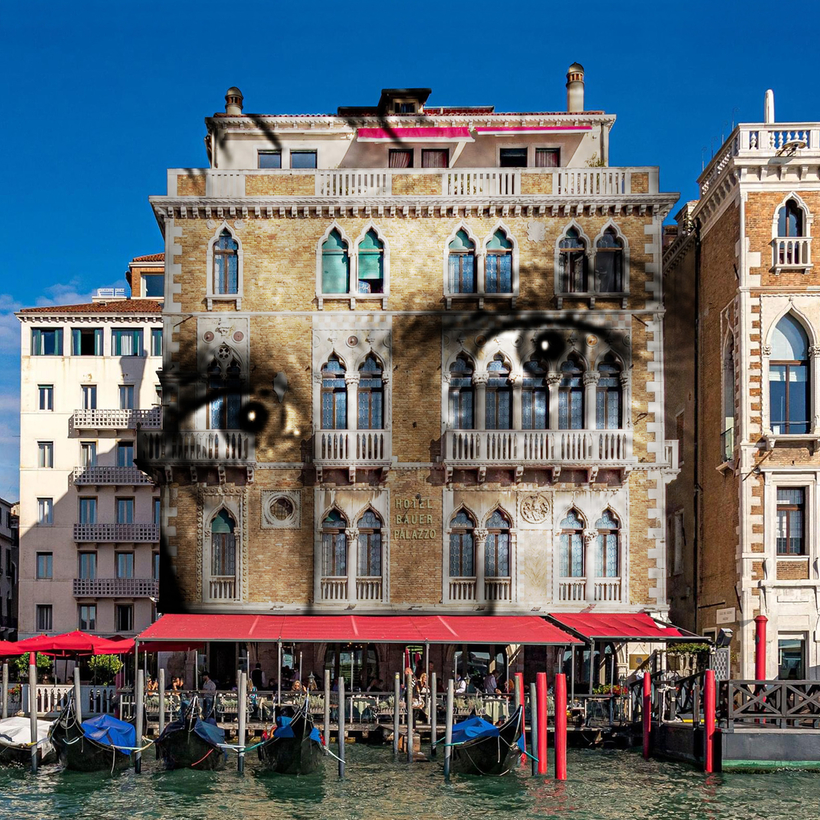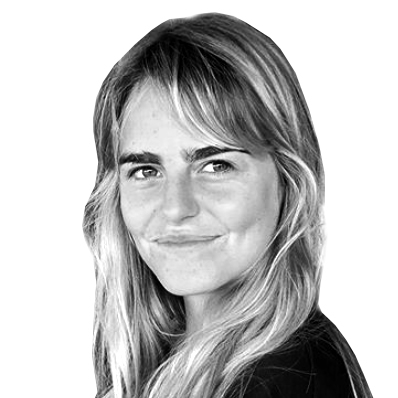On June 7, 2024, a 24-year-old aspiring actress showed up at an apartment on Via Francesco Sforza, a ritzy street that loops around Milan’s historic city center. She was there for what she was told would be a promotional video for a gynecology practice called Centro Clinica Italia.
The actress had no reason to be nervous. She’d found the listing on a casting Web site, and the job was advertised as straightforward: a “public-facing medical-educational video” that would describe how routine procedures took place. The listing promised between $166 and $555 for a few hours’ work.
But the moment she walked inside, something felt off. The office was dingy, and rather than being greeted by a woman—the e-mails she’d exchanged with Centro Clinica Italia ahead of time had been signed by someone who used feminine pronouns—there were two men present when she arrived.
The older one introduced himself as the gynecologist. He appeared to be in his late 60s, with white hair, a round face, and an official-looking lab coat. The younger man, blond, with sharp blue eyes and neatly combed hair, said he was the cameraman.
Then came the pitch. The doctor, “in a professional manner,” according to a police report that was later filed, explained that the shoot would involve simulating a gynecological exam. First, an external check, while the actress remained in her underwear. Then she’d undress, and they’d move on to using medical instruments—specula, electronic equipment, and so on. The whole thing would be filmed.
“I couldn’t move because I was in shock,” the actress later told police. “I was scared—I feared those people could hurt me.” So, reluctantly, she complied.
When she stepped back outside, the actress felt unsteady. Panic rose in her stomach. What if the men shared the footage on the Internet?
The panic didn’t go away. She couldn’t sleep. She cried at random times. She sought help from a women’s organization, which referred her to a psychiatrist. Then, on June 9, two days after the shoot, she went to the police.
In the weeks and months after the actress first approached the police, authorities would come to allege that the “gynecologist” was actually Antonio Cirla, a 71-year-old retired surgeon and radiologist who had worked at the Sant’Anna hospital in nearby Como. The “cameraman” was Alessandro Possati, the 42-year-old heir to one of Venice’s most prominent families.
And the clinic was a front allegedly orchestrated by Cirla and Possati, who filmed women and uploaded the footage to porn Web sites and encrypted group chats. According to the prosecutor, the operation had been running since 2016.
A Charmed Upbringing
To any well-to-do Italian, the name Possati likely rings a bell. Until six years ago, Alessandro’s mother, Francesca Bortolotto Possati, represented the third generation at the helm of the Bauer Hotel, a glamorous 19th-century neo-Gothic palazzo on the Grand Canal.
Alessandro Possati was born in New York—his mother had moved there with his father, Marco, in the early 1980s—but the family returned to Venice when he was 10, where Francesca soon took over the running of the Bauer from her father. “It was a ‘sleeping beauty,’” she said in an interview, “I was thrilled to take on the challenge.”

In 2004, a New York Times article described the hotel’s rooms as “fit for a doge” and its prices as equally “dogelike.” True to form, since opening in 1880, the hotel had already hosted a constellation of boldface names—everyone from King Charles to Marilyn Monroe to Daniel Craig. One year, during the Venice film festival, George Clooney and Brad Pitt drank champagne on the hotel terrace.
Possati fit the bill as the scion of this legacy. He cruised around Venice in a small wooden boat, wore blazers and crisp shirts, and is a self-described director of Save Venice, an American nonprofit devoted to preserving the city’s artistic heritage, where his mother is on the board. (Last month, it partnered with New York’s Metropolitan Museum of Art to host a “Banquet of Cleopatra”-themed masked gala at the Plaza. Guests included Ivy Getty, Nicky Hilton, and Emily Rockefeller.)
In 2011, Possati founded Zuecca Projects, a curatorial art platform on the island of Giudecca that has collaborated with institutions such as the Peggy Guggenheim Collection, Ca’ Foscari University, and the Venice Biennale, this year unveiling a pavilion with the country of Togo. And in 2012, Possati launched a production company called Illumina Film, which has since shot campaigns for the Hilton hotels and partnered with publications including Vogue and Artribune.
Art, hospitality, and even fashion were all within reach for Possati. In 2019, he posed for a campaign for the shoe company Santoni. In it, he appears in black and white, seated on a white stool. “I find beauty through the people I meet,” he says in the voice-over. “And those people show me different types of beauty across the world.”
This was at the height of his visibility, and around the same time that his family accepted an offer: the American firm Elliott Management, known for its activist takeovers, and Blue Skye, a European investment group, were teaming up to acquire the Bauer Hotel for around $444 million. (It was flipped to a company called Signa less than a year later.)
Still, despite a picture-perfect public image, some people who knew Possati harbored doubts about him.
“Those who worked closely with Possati, when he was personally present, remember him as a disturbing figure, often visibly altered,” read a May 11 social-media post by Biennalocene, a collective of Venetian cultural workers, in response to the scandal becoming public.
Others felt similarly. “He was just a weird guy,” one person who knew Possati socially told me. “He should have been part of the group, but he was always on the sidelines.”
A Heinous Crime
Since the actress reported the incident to the police, last June, a nearly year-long investigation followed. What the authorities uncovered is staggering.
Possati and Cirla allegedly corresponded via e-mail with 135 women. They placed advertisements in bulletins, scheduled appointments posing as female secretaries and promising meetings with female doctors, and rented the apartment on Via Francesco Sforza using fake documents. Most days, Cirla played doctor while Possati manned the camera. Sometimes they switched—Possati didn’t seem to mind wearing the lab coat.
Found on Possati and Cirla’s phones and laptops: hundreds of clips from these sessions, mostly close-up, many of them graphic. Some were uploaded to group chats on Telegram, the encrypted-messaging app. Others were uploaded to porn sites under the “medical exam” category. Investigators also found pedophiliac material on Possati’s hard drive. It’s unclear so far whether there was any monetary benefit for the participants, or how Possati and Cirla met. The authorities also aren’t sure whether Cirla knew Possati’s true identity; according to police, Possati at times used a fake foreign accent when speaking to victims.
The actress is one of six women police know of so far who actually undressed and went through with the filming; three of those came back more than once. Most of the others got to the front door and ran. Prosecutors think there are many more victims—especially since a lot of the e-mail threads in the investigation just cut off, suggesting the conversations may have moved elsewhere.
At a preliminary hearing in Milan earlier this month, both Possati and Cirla exercised their right to remain silent. Accused of group sexual assault, they are now under house arrest awaiting trial. For Possati, that isn’t so bad. The family palazzo, on the Grand Canal—the same one where Angelina Jolie stayed while filming The Tourist—has windows overlooking the lagoons.
But one thing is for certain: the family’s quiet, glamorous rule over Venice is over. In 2022, the Bauer’s interiors were picked apart and sold off piece by piece for $1.6 million at a Paris auction—everything from Murano glass to Rubelli fabrics.
“He was strange,” one friend of mine who knew him says. “But who in their wildest dreams could have dreamt something like this up? He’s a Possati.”
Elena Clavarino is the Senior Editor at Air Mail


